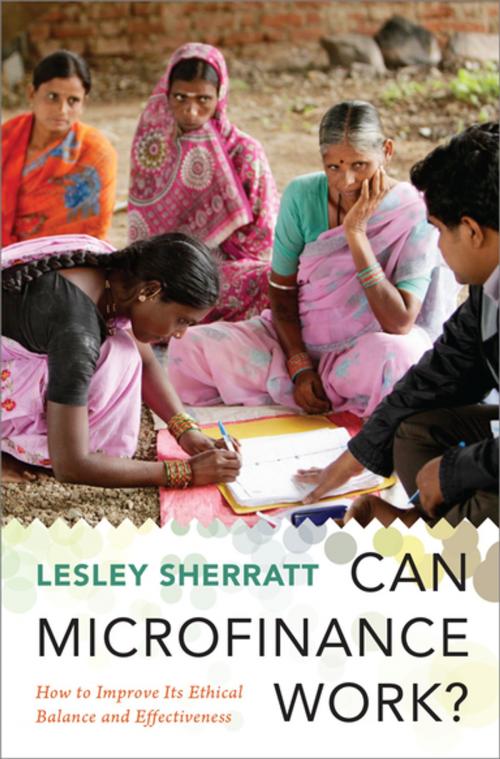Can Microfinance Work?
How to Improve Its Ethical Balance and Effectiveness
Business & Finance, Economics, Economic Development, Nonfiction, Religion & Spirituality, Philosophy, Political, Finance & Investing, Finance| Author: | Lesley Sherratt | ISBN: | 9780190264864 |
| Publisher: | Oxford University Press | Publication: | December 15, 2015 |
| Imprint: | Oxford University Press | Language: | English |
| Author: | Lesley Sherratt |
| ISBN: | 9780190264864 |
| Publisher: | Oxford University Press |
| Publication: | December 15, 2015 |
| Imprint: | Oxford University Press |
| Language: | English |
Microfinance began with the noble aim of alleviating poverty through the extension of small loans to poor borrowers, and has grown to now serve approximately 200,000,000 people-the majority of whom are female. Yet despite claims to the contrary, the practice has not been proven to have succeeded in either enriching or empowering its borrowers. In a thorough-going ethical assessment of the industry, Can Microfinance Work? examines the central microfinance model and whether or not it is effective, the extent to which the practice creates the conditions for exploitation and coercion to occur, and whether the distribution of the benefits and burdens of microfinance is likely to be an ethical one. Author Lesley Sherratt argues for the establishment of a duty of care in microfinance in recognition of the vulnerability of the client base. She also examines the ethical dilemmas inherent in working in the informal sector, as well as microcredit's macro impact on economies. From there, Sherratt draws some wider lessons microfinance can offer anti-poverty developments in general. Challengingly, the book considers how microfinance might be reformed to ensure it is practiced both more ethically and effectively, and in doing so, argues that only a part of the industry may survive in its current form. The bulk could instead bifurcate in to one of two camps, either scaling down to become predominantly savings rather than credit vehicles, probably subsidized; or scaling up to provide credit to small and medium enterprise lending operations. For the rest, it is argued that establishing a non-exploitative interest rate, ending the practice of group liability, and fully specifying a duty of care -- with, if necessary, regulation developed to enforce these -- are microfinance's urgent ethical priorities.
Microfinance began with the noble aim of alleviating poverty through the extension of small loans to poor borrowers, and has grown to now serve approximately 200,000,000 people-the majority of whom are female. Yet despite claims to the contrary, the practice has not been proven to have succeeded in either enriching or empowering its borrowers. In a thorough-going ethical assessment of the industry, Can Microfinance Work? examines the central microfinance model and whether or not it is effective, the extent to which the practice creates the conditions for exploitation and coercion to occur, and whether the distribution of the benefits and burdens of microfinance is likely to be an ethical one. Author Lesley Sherratt argues for the establishment of a duty of care in microfinance in recognition of the vulnerability of the client base. She also examines the ethical dilemmas inherent in working in the informal sector, as well as microcredit's macro impact on economies. From there, Sherratt draws some wider lessons microfinance can offer anti-poverty developments in general. Challengingly, the book considers how microfinance might be reformed to ensure it is practiced both more ethically and effectively, and in doing so, argues that only a part of the industry may survive in its current form. The bulk could instead bifurcate in to one of two camps, either scaling down to become predominantly savings rather than credit vehicles, probably subsidized; or scaling up to provide credit to small and medium enterprise lending operations. For the rest, it is argued that establishing a non-exploitative interest rate, ending the practice of group liability, and fully specifying a duty of care -- with, if necessary, regulation developed to enforce these -- are microfinance's urgent ethical priorities.















